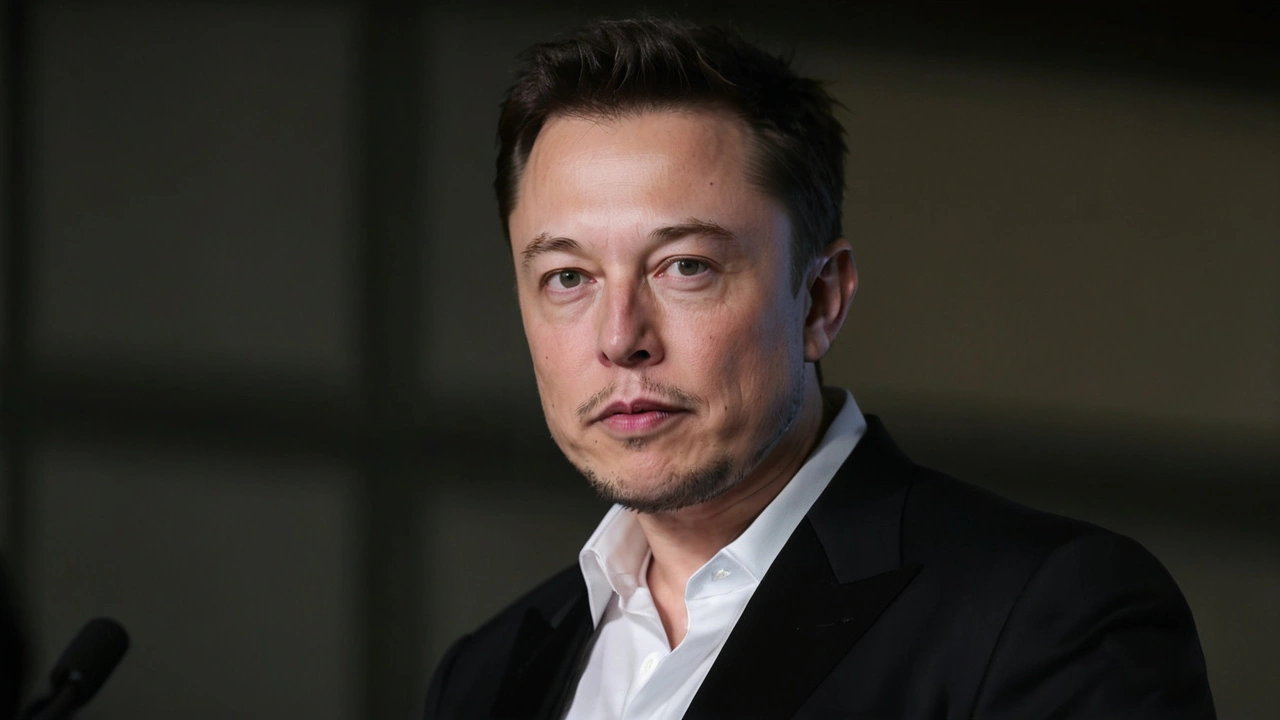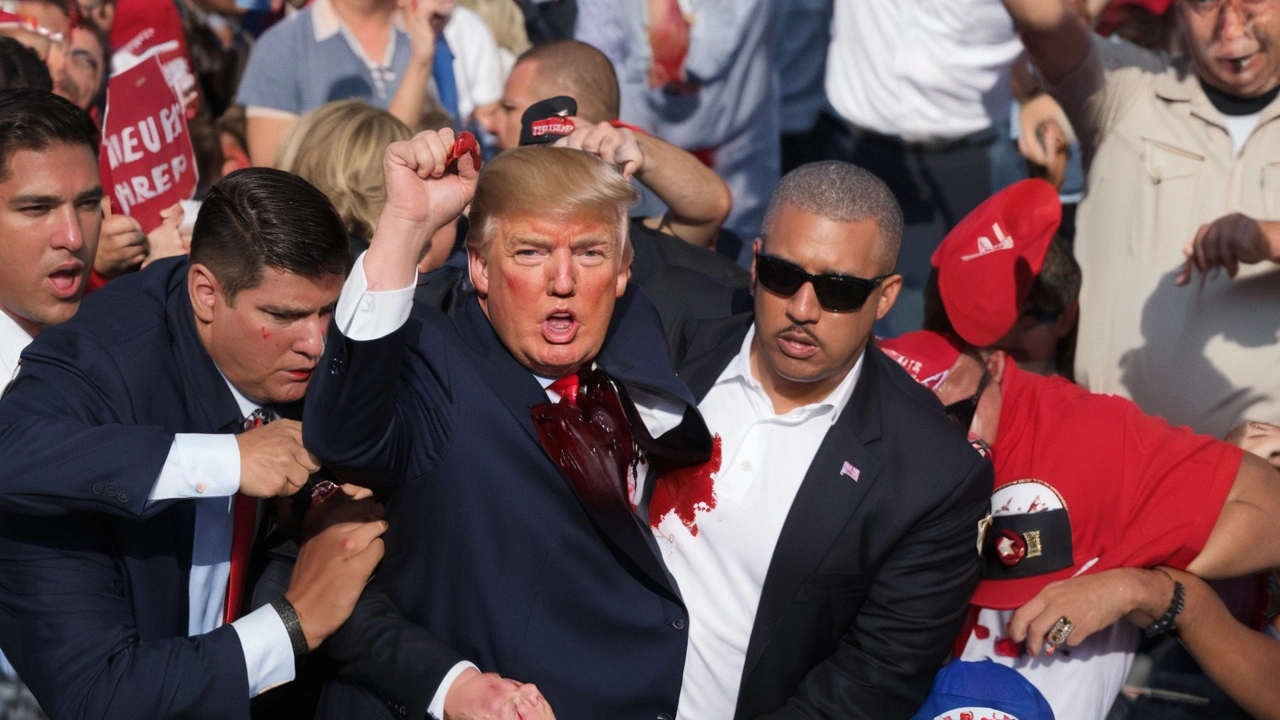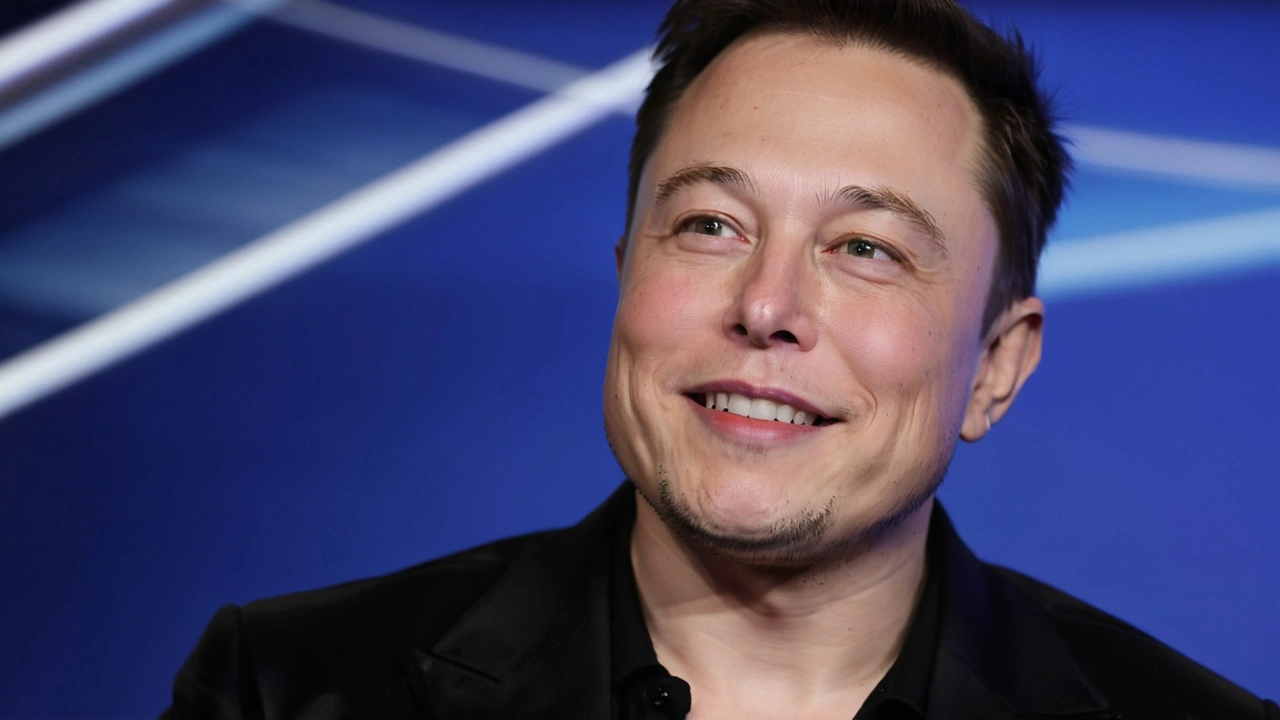Elon Musk's Bold Allegations Against Google
Tech mogul Elon Musk, known for his ventures ranging from Tesla to SpaceX, stirred up a new controversy by accusing Google of censoring search results related to former President Donald Trump. According to Musk, the tech giant is deliberately manipulating search outcomes in a way that could potentially influence the upcoming presidential election. This edgy claim gained traction when Musk shared a screenshot purportedly showing unrelated and misleading search results such as 'President Donald Duck' and 'President Donald Reagan' when searching for 'President Donald'.
Musk's allegations come at a time when the role of big tech companies in shaping public opinion is under severe scrutiny. He suggested that the search giant’s actions might be a veiled attempt to interfere in electoral processes. The implications, if true, signal a potentially significant breach of democratic norms, inviting punitive actions against Google. However, critics were quick to debunk Musk’s claims. Upon checking in incognito mode, users found that search results for 'Donald Trump' appeared without any discrepancies, bringing Musk’s motives into question.
A Sudden Political Shift
Elon Musk has always been an enigmatic figure, with his political affiliations somewhat mysterious until recently. In a striking move, he has grown increasingly vocal in his support for Donald Trump, marking a notable departure from his earlier support for President Joe Biden in the 2020 election. Musk's willingness to publicly endorse Trump has set off alarm bells, considering his previous low-key interaction with party politics. He has gone as far as calling for the resignation of the head of the Secret Service following an alleged assassination attempt on Trump at a Pennsylvania rally. Additionally, Musk has made a significant yet undisclosed donation to America PAC, a pro-Trump super political action committee.

Examining the Evidence
The contentious screenshot shared by Musk showed search results that seemed comical and irrelevant, giving the impression that Google might be imposing a shadow ban on Donald Trump. The evidence, at first glance, appeared incriminating. Yet, it didn't take long for skeptics to test Musk’s allegations. In the anonymity of incognito mode, simple searches for 'Donald Trump' revealed accurate and relevant results relating to the former president. This quick refutation shed light on the questionable nature of Musk’s allegations, raising important questions about the intentionality behind his statements.
It’s important to reflect on the role of social media and influential personalities in shaping public discourse. With Elon Musk having a massive online following, his statements carry weight, irrespective of their veracity. The rapid dissemination of information and the consequent potential for misinformation are alarming, challenging the processes that seek to preserve election integrity and public trust in democratic institutions.
Further Ramifications
Musk’s accusations led to a wave of discussions about the accountability of tech giants and the transparency of their algorithms. If Google were indeed found to be meddling in electoral matters, it could lead to significant regulatory changes and constrain corporate freedom in unprecedented ways. Legislators have long been advocating for more stringent checks on big tech companies to ensure their neutrality and adherence to democratic principles. Musk's claims have catalyzed these conversations, making the urgency for comprehensive digital reforms more apparent.
The scenario also opens the floor to legal implications. Should a formal investigation find evidence supporting Musk’s assertions, Google could face lawsuits, regulatory fines, and a tarnishing of its public image. Conversely, Musk’s credibility could suffer a blow if his claims prove to be unfounded, underscoring the caution needed when making such severe accusations.

Public and Political Reactions
The public reaction to Musk's statements has been polarized. While some staunch supporters of Trump echoed Musk's sentiment, propelling theories of left-wing conspiracies, others dismissed it as another eccentric outburst from the Tesla CEO. Politically, the allegations have intensified the already fierce debates on the governance of tech companies and their growing influence over public perception.
Prominent figures in the tech industry, lawmakers, and political analysts have weighed in on the issue. Many argue that sifting through algorithms to ensure non-partisanship is an incredibly complex task, one that may inevitably involve some degree of oversight and bias. Yet, the overarching consensus underscores the need for transparency and fairness in how information is curated and presented to the public.
Looking Forward
As this drama unfolds, it remains to be seen whether Musk will provide more concrete evidence to support his accusations or if this event will be relegated to another one of Musk's headline-grabbing claims. The broader implications for the tech industry are undeniable, placing Google under a microscope and potentially prompting a re-evaluation of digital oversight measures.
Ultimately, the episode serves as a stark reminder of the delicate balance between freedom of expression and the ethical responsibilities of tech giants. It also highlights the complexities of managing the information ecosystem in an era where misinformation can spread rapidly and influential figures can sway public opinion with just a few tweets. As these dynamic narratives continue to evolve, the world watches closely, bracing for the next revelations in this unfolding saga.















